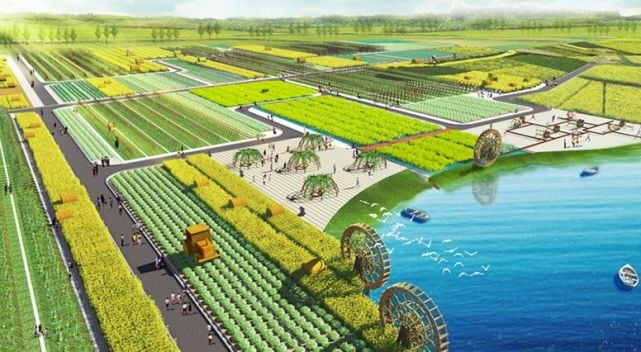In recent years, Malipo County, Wenshan Zhuang and Miao Autonomous Prefecture, Yunnan Province, has seized new opportunities for the integrated development of agriculture, culture, and tourism, creating a unique development path of rural tourism with rural scenery as the background, ecological agriculture as the connotation, and tourism as the theme. Nowadays, the lush green rice fields have not only become fertile land for grain production and the “golden rice bowl” for farmers to increase their diversified income, but also become a beautiful scenery for sightseeing agriculture.
Entering the rice planting area of Maocaoping Village Committee in Mali Town, less than ten kilometers away from the county seat, the crisscrossing fields are sprinkled with lush greenery. The rice fields complement the undulating green mountains, scattered residential buildings, flowing streams, and crisscrossing rural greenways, creating beautiful rural landscapes that showcase a vibrant scene.
The wind blows the rice waves, and the endless rice fields waft in waves of seemingly endless fragrance. Such beautiful farmland not only attracts bees and butterflies recklessly, but also attracts many tourists. In the poetic and picturesque rice fields, you can occasionally see three or five tourists taking photos and sightseeing in the fields, enjoying the rural joy of “saying good years in the fragrance of rice flowers”.
It is understood that the Maocaoping Village Committee takes rice field culture as the theme, integrating agricultural elements with tourism resources, and continuously expanding the functions of agricultural sightseeing, leisure, vacation, and experience. At present, the rice fields in Maocaoping Village have transformed from traditional agricultural sites to become a popular online attraction that integrates agriculture, tourism, and culture. We strive to enable more and more villagers to have “cultural and tourism meals” and serve “golden rice bowls” at their doorstep.
According to reports, Maocaoping Village currently cultivates over 200 acres of rice with a yield of over 800 kilograms per mu. The climate here is relatively cool, the soil and water quality are good, and the rice quality is very good. It is relatively close to the county town, and many people come here to enjoy the beautiful scenery of the rice fields and book new rice in advance. Mali Town will be based on tourism to enrich and benefit the people, tap into landscape cultural resources, and revitalize idle resources. By gradually improving the functions of farming experience, folk culture, rice industry, and specialty catering, it will develop agricultural tourism projects, polish the ecological business card, and continuously enhance the “gold content” of rural tourism brands.







Please sign in to comment
register